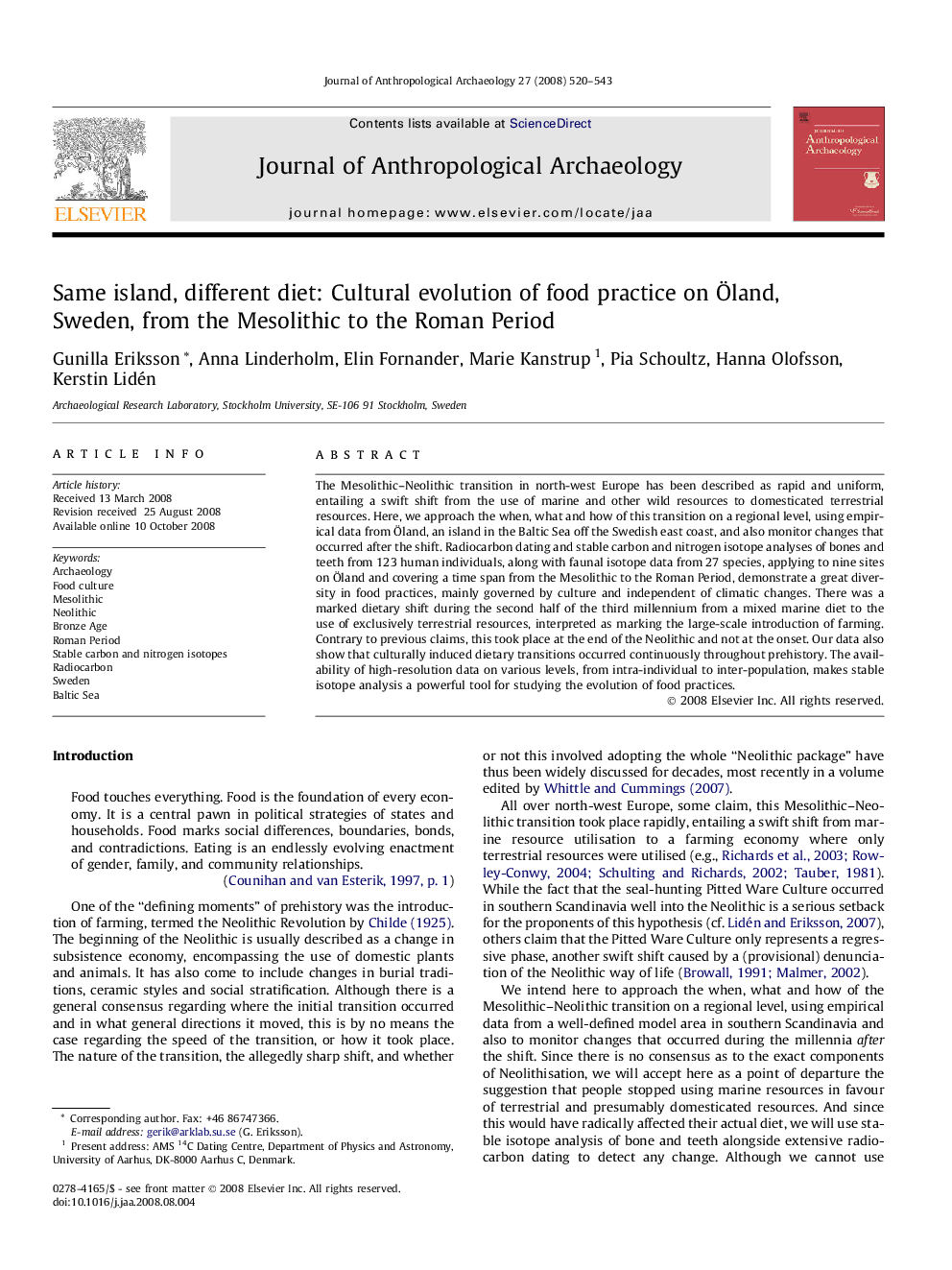| کد مقاله | کد نشریه | سال انتشار | مقاله انگلیسی | نسخه تمام متن |
|---|---|---|---|---|
| 1035130 | 943700 | 2008 | 24 صفحه PDF | دانلود رایگان |

The Mesolithic–Neolithic transition in north-west Europe has been described as rapid and uniform, entailing a swift shift from the use of marine and other wild resources to domesticated terrestrial resources. Here, we approach the when, what and how of this transition on a regional level, using empirical data from Öland, an island in the Baltic Sea off the Swedish east coast, and also monitor changes that occurred after the shift. Radiocarbon dating and stable carbon and nitrogen isotope analyses of bones and teeth from 123 human individuals, along with faunal isotope data from 27 species, applying to nine sites on Öland and covering a time span from the Mesolithic to the Roman Period, demonstrate a great diversity in food practices, mainly governed by culture and independent of climatic changes. There was a marked dietary shift during the second half of the third millennium from a mixed marine diet to the use of exclusively terrestrial resources, interpreted as marking the large-scale introduction of farming. Contrary to previous claims, this took place at the end of the Neolithic and not at the onset. Our data also show that culturally induced dietary transitions occurred continuously throughout prehistory. The availability of high-resolution data on various levels, from intra-individual to inter-population, makes stable isotope analysis a powerful tool for studying the evolution of food practices.
Journal: Journal of Anthropological Archaeology - Volume 27, Issue 4, December 2008, Pages 520–543